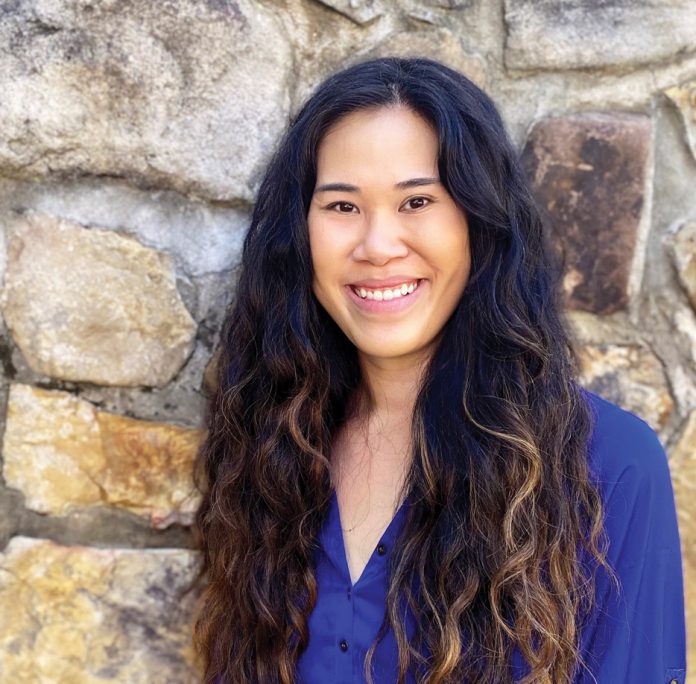Dr. Amanda Kong, assistant professor at the TSET Health Promotion Research Center, and Dr. Lisa Henriksen, senior research scientist at the Stanford Prevention Research Center, Stanford, California, recently co-authored an article published in the special 30th anniversary edition of Tobacco Control. This special issue brings together thought leaders to reflect on 30 years of progress in tobacco control and areas for future directions.
Kong and Henriksen’s article, “Retail endgame strategies: Reduce tobacco availability and visibility and promote health equity,” discusses solution-oriented policies to limit the quantity, location and type of stores that can sell tobacco, thereby reducing the visibility of tobacco products and related marketing.
“Across the world, countries are setting tobacco endgame goals to dramatically decrease cigarette smoking and tobacco use prevalence,” noted Kong, lead author. “Policies focused on decreasing both the supply and visibility of tobacco products have the potential to help countries not only reach endgame targets, but to do so equitably so that no populations are left behind.” (story continues below)
Friday, April 1, 2022 | INTEGRIS HEALTH NURSE RECRUITMENT EVENT
Kong and Henriksen compared the number of pharmacies, alcohol retailers and tobacco retailers per 10,000 past-month consumers of each product in the USA. They found that the retail supply was 10, and two times greater for tobacco than for prescription drugs and alcohol, respectively, suggesting there are many more tobacco retailers than necessary to meet consumer demand. The authors note that tobacco retailers are also disproportionately concentrated in neighborhoods with greater socioeconomic deprivation and higher proportions of minoritized racial and ethnic groups.
“We challenge policymakers, practitioners and researchers to prioritize equity-oriented goals and work collaboratively to identify, implement and evaluate evidence-based solutions to regulate the tobacco retail environment,” Henriksen said.
The article titled Retail endgame strategies: Reduce tobacco availability and visibility and promote health equity” can be read in its entirety here. Kong is supported by the National Cancer Institute of the National Institutes of Health (P30CA225520) and the Oklahoma Tobacco Settlement Endowment Trust (TSET R21-02). Henriksen is supported by the National Cancer Institute of the National Institutes of Health (P01CA225597).
OU Health Stephenson Cancer Center is Oklahoma’s only National Cancer Institute-Designated Cancer Center. It was named Oklahoma’s top facility for cancer care by U.S. News & World Report in its 2020-21 rankings. Stephenson Cancer Center is one of the nation’s elite centers, representing the top 2% of cancer centers in the country. It is the largest and most comprehensive oncology practice in the state, delivering patient-centered, multidisciplinary care for every type of cancer. As one of the nation’s leading research organizations, Stephenson Cancer Center uses the latest innovations to fight and eliminate cancer, and is currently ranked No. 1 among all cancer centers in the nation for the number of patients participating in clinical trials sponsored by the NCI’s National Clinical Trials Network. For more information, visit stephensoncancercenter.org.
OU Health is the state’s only comprehensive academic health system of hospitals, clinics and centers of excellence. The flagship academic healthcare system is the clinical partner of the University of Oklahoma Health Sciences Center, one of the most comprehensive academic and research campuses in the country. With 10,000 employees and more than 1,300 physicians and advanced practice providers, OU Health is home to Oklahoma’s largest doctor network with a complete range of specialty care. OU Health serves Oklahoma and the region with the state’s only freestanding children’s hospital, the only National Cancer Institute-Designated OU Health Stephenson Cancer Center and Oklahoma’s flagship hospital, which serves as the state’s only Level 1 trauma center. OU Health’s oncology program at OU Health Stephenson Cancer Center was named Oklahoma’s top facility for cancer care by U.S. News & World Report in its 2020-21 rankings. OU Health also was ranked by U.S. News & World Report as high performing in these specialties: Colon Surgery, COPD and Congestive Heart Failure. OU Health’s mission is to lead healthcare in patient care, education and research. To learn more, visit ouhealth.com.













